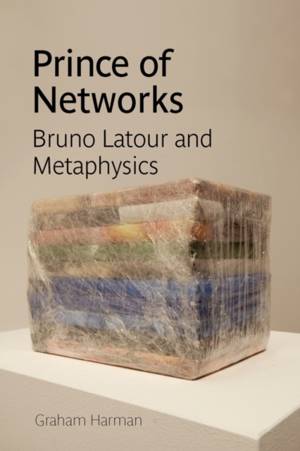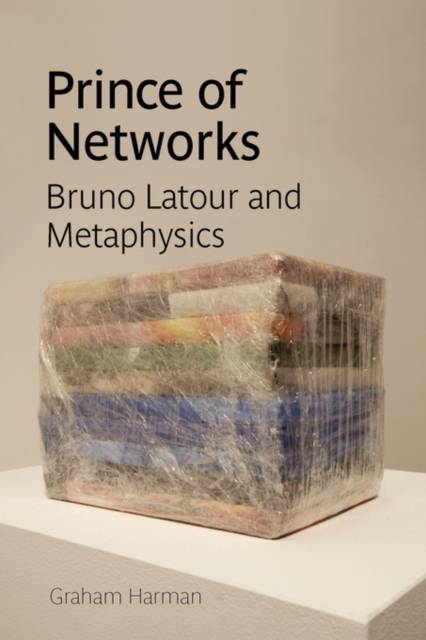
Je cadeautjes zeker op tijd in huis hebben voor de feestdagen? Kom langs in onze winkels en vind het perfecte geschenk!
- Afhalen na 1 uur in een winkel met voorraad
- Gratis thuislevering in België vanaf € 30
- Ruim aanbod met 7 miljoen producten
Je cadeautjes zeker op tijd in huis hebben voor de feestdagen? Kom langs in onze winkels en vind het perfecte geschenk!
- Afhalen na 1 uur in een winkel met voorraad
- Gratis thuislevering in België vanaf € 30
- Ruim aanbod met 7 miljoen producten
Zoeken
€ 34,95
+ 69 punten
Omschrijving
Prince of Networks is the first treatment of Bruno Latour specifically as a philosopher. It has been eagerly awaited by readers of both Latour and Harman since their public discussion at the London School of Economics in February 2008. Part One covers four key works that display Latour's underrated contributions to metaphysics: Irreductions, Science in Action, We Have Never Been Modern, and Pandora's Hope. Harman contends that Latour is one of the central figures of contemporary philosophy, with a highly original ontology centered in four key concepts: actants, irreduction, translation, and alliance. In Part Two, Harman summarizes Latour's most important philosophical insights, including his status as the first 'secular occasionalist.' The problem of translation between entities is no longer solved by the fiat of God (Malebranche) or habit (Hume), but by local mediators. Working from his own 'object-oriented' perspective, Harman also criticizes the Latourian focus on the relational character of actors at the expense of their cryptic autonomous reality. This book forms a remarkable interface between Latour's Actor-Network Theory and the Speculative Realism of Harman and his confederates. It will be of interest to anyone concerned with the emergence of new trends in the humanities following the long postmodernist interval. 'Graham Harman does for Bruno Latour what Deleuze did for Foucault. Rather than a recounting of Latour's impressive sociological analyses, Harman approaches Latour as a philosopher, offering a new realist object-oriented metaphysic capable of sustaining contemporary thought well into the next century. What ensues is a lively and productive debate between rival, yet sympathetic, orientations of object-oriented philosophy between two of our most highly original, daring, and creative philosophers, giving us a text destined to have a major impact on contemporary philosophical thought and providing exciting avenues beyond reigning deadlocks that haunt philosophy today.' Professor Levi R. Bryant (Collin College), author of Difference and Givenness: Deleuze's Transcendental Empiricism and the Ontology of Immanence. 'Graham Harman's book Prince of Networks is a wonderfully eloquent exposition of the metaphysical foundations of Latour's work. This is not an introduction to Latour. It is rather a skilful and penetrating interpretation of his work, as well as a insightful Heideggerian critique. At last somebody has taken Latour to heart and to task. I cannot imagine a more forceful, incisive and lucid analysis of the foundations of Latour's work than this one.' Professor Lucas D. Introna (Lancaster University)
Specificaties
Betrokkenen
- Auteur(s):
- Uitgeverij:
Inhoud
- Aantal bladzijden:
- 258
- Taal:
- Engels
- Reeks:
Eigenschappen
- Productcode (EAN):
- 9780980544060
- Verschijningsdatum:
- 25/06/2009
- Uitvoering:
- Paperback
- Formaat:
- Trade paperback (VS)
- Afmetingen:
- 152 mm x 229 mm
- Gewicht:
- 381 g

Alleen bij Standaard Boekhandel
+ 69 punten op je klantenkaart van Standaard Boekhandel
Beoordelingen
We publiceren alleen reviews die voldoen aan de voorwaarden voor reviews. Bekijk onze voorwaarden voor reviews.









